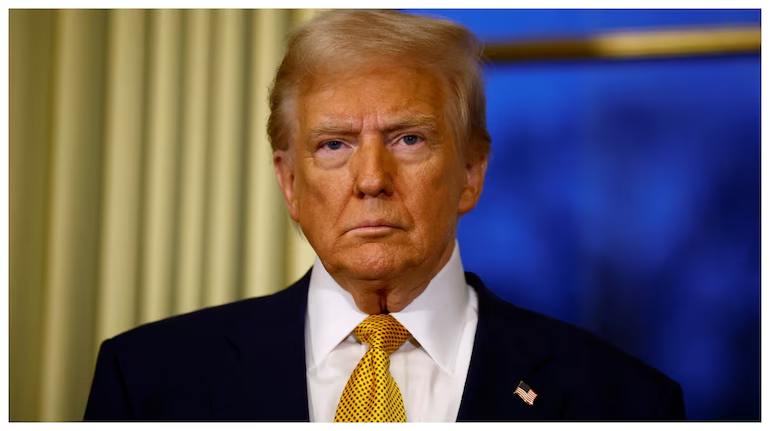American TV personality and market analyst, Jim Cramer, has issued a stark warning about the possibility of a market collapse similar to the catastrophic “Black Monday” of 1987. Speaking on his show Mad Money on CNBC, Cramer cautioned that the markets could experience one of the worst one-day declines since the global crash over three decades ago if U.S. President Donald Trump does not reach out to countries yet to place retaliatory tariffs and offer them incentives for compliance.
Cramer referenced the 1987 stock market crash, where the U.S. Dow Jones Industrial Average plunged by 22.6% in a single day. He expressed concerns that the current trade tensions, exacerbated by Trump’s newly imposed tariffs, might lead to a similar catastrophe unless diplomatic actions are taken.
Cramer’s Forecast and Call for Action
“If the president doesn’t try to reach out and reward these countries and companies that play by the rules, then the 1987 scenario… the one where we went down three days and then down 22% on Monday, has the most cogency,” Cramer said during the April 2 broadcast. “We will not have to wait too long to know. We will know it by Monday.”
His warning comes ahead of April 7, with Cramer suggesting that the impact of the tariffs could be felt globally by then, potentially triggering a disastrous decline in global market indexes.
Market Struggles Following Trump’s Trade War
In the days leading up to Cramer’s warning, the U.S. stock market showed signs of distress. On Thursday and Friday, U.S. market indexes saw sharp declines following Trump’s announcement of a 10% “baseline” tariff on imports from all countries.
The S&P 500 closed the week down 6%, marking its worst performance since the pandemic-related sell-offs in 2020. Meanwhile, the Dow Jones and Nasdaq both fell significantly, losing 5.5% and 5.8%, respectively.
The Dow Jones lost 2,231 points on Friday, after falling 1,679 points the previous day—marking its worst two-day drop since March 2020. These developments sent shockwaves through global markets, with declines spreading to Europe, Asia, and even India.
Avoiding a Recession Amid Declining Markets
Despite the sharp declines, Cramer highlighted a key factor that could prevent the U.S. from entering a recession: robust job numbers. According to Cramer, the strong job market makes it less likely that the market carnage will result in a full economic collapse.
“I will contain my anger, but only because I lived through ‘87 and in the end, I came out okay. I was in cash for the crash. I know what this feels like,” Cramer remarked, referencing his experience during the 1987 market collapse.
Cramer’s Past Predictions and Controversies
Cramer, known for his bold market predictions, has a track record of offering insights during significant economic events. From the dot-com boom of the early 2000s to the global financial crisis of 2007-2008, Cramer has made headlines with his forecasts.
However, not all of his predictions have aged well. During the 2007-2008 financial crisis, Cramer faced backlash for encouraging people to invest in companies like Bear Stearns, Merrill Lynch, Morgan Stanley, Wachovia, and Lehman Brothers just before their stock values crashed, and the firms eventually shut down.
A Call to Action Amid Trade Uncertainty
Cramer has continued to raise alarms regarding the ongoing trade war and Trump’s tariffs. Shortly after Trump’s tariff announcement, Cramer tweeted: “It’s tough to build a new, weaker, world order on the fly. Frantically trying to do it, but don’t see anything yet that takes the October 87 scenario off the table yet. Those who bottom-fished are sleeping with the fishes… so far.”
In another tweet, he recalled his personal experience during the 1987 crash, when he and others in the market knew to sell their assets to avoid the devastating downturn: “Look I don’t want a repeat of ‘87 of course. But I traded during that period and remember each day well. We knew to sell… and we are proud we did. But we felt like idiots because the week BEFORE the crash was so bad and we were late to sell.”
Looking Ahead: What Comes Next for Global Markets?
As the world watches closely, many are left wondering whether the global markets can recover or if a repeat of the 1987 crash is imminent. While Cramer’s warning highlights the potential for a major downturn, his message also underscores the importance of diplomatic and trade negotiations in avoiding such a scenario. With tensions still high and trade policies in flux, the coming weeks will be critical for markets across the globe.
As Trump’s tariffs continue to shake economies, traders, analysts, and investors alike are left hoping for a more stable resolution that avoids the worst-case scenario.






